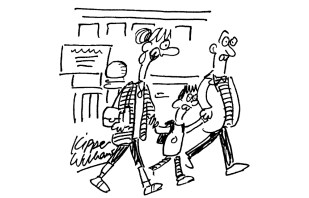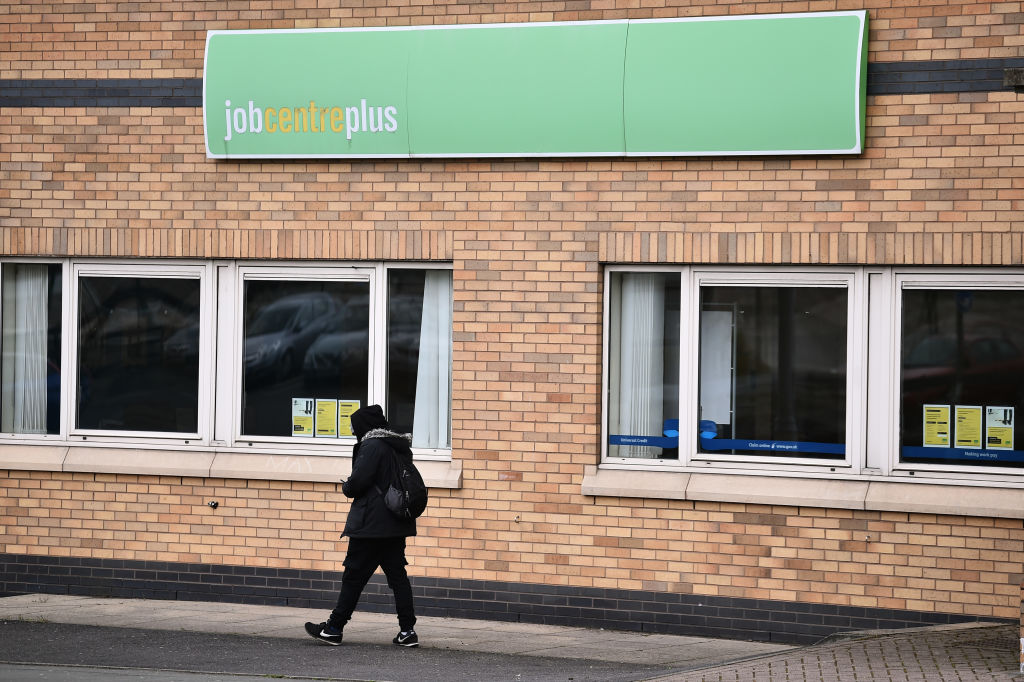When is a state school pupil not a state school pupil? When he has a private tutor. That’s when he becomes a state-private hybrid. So, when parents pore over the university admissions and the A-level grades of state secondary schools, they should ask themselves whether all those results are attributable to the school or whether there may have been outside help. Not that anyone’s going to tell you. In a fee-paying school you don’t normally need to go outside; that’s why you pay those whopping fees.
Granted, exams are overrated but the world being what it is – obsessed with top universities – lots of parents will do whatever it takes to get their child into one. And so they hire a private tutor. It doesn’t guarantee success – if you’re thick, you’re thick – but it almost certainly helps.
The young genius at interview may well have been tutored at vast expense to get to that point
You know what that means? All those Russell Group universities which go out of their way to give preference to state school pupils are often getting a different candidate than they think. Rather than being the product of a state school, the young genius at interview may well have been tutored at vast expense to get to that point.
I got a tutor myself not long ago. My son needed three As to study the subject he wanted, and when he left his very good state school, he had two; he still needed one in history. He had done pretty well in the exam but failed with the essay done in his own time. That is to say, he had stubbornly written the essay the way he wanted, not in the way the examiners dictated. The essay was fine; it just didn’t tick the boxes.
So you know, you can’t just write a coherent essay with a clear argument either for A-level coursework or for the written exam. You have to jump through hoops. Anyway, the upshot was that he was retaking his A-levels by himself and needed the A.
By good luck, a friend of mine was married to the nice head of a department in a nearby private school. She said she’d see if any of her colleagues would help, and she found a historian, whom we’ll call Kevin. He was astonishingly good. He was also very nice. And not at all cheap; £110 an hour, or was it £120? Lots anyway.
It was like having a friend coming round – indeed, he was a friend – only one who was focused on the all-important question of how to give the examiners what they were looking for, and tick every box on their marking sheet. So, you have to use evaluative language, such as ‘Queen Mary failed in her aim of…’; ‘Henry VII was successful in accomplishing…’; and make statements that sound like judgments, ‘I consider that…’ or ‘in my view…’. You have to make interim judgments as you go as well as at the end, and remind the examiners of the question in every section so they know you’re not going off-piste.
Kevin had spent time himself marking papers so he knew what the system was like on the other side. He brought printouts of the model essays provided by the exam boards, which were reassuringly mediocre. He had studied the marking schemes and could talk students through the things that would make an examiner say: ‘Aha! Evaluative language!’ He freely admitted that this wasn’t an ideal system – that previously exams were set and marked by intelligent people who knew the subject and could recognise a good argument. But his business was to give exam boards what they wanted and he did, because he knew the system inside-out.
It worked for his pupils; it worked for my son. He got the A.
Few tutors are as good as Kevin. But dealing with him made me recognise the divide between the very best state schools and the very best fee-paying schools. It’s big.

The solution, I think, is not to outlaw tutoring but to make sure as many pupils as possible have it. When I needed help with maths at school in Ireland, my cousin and I went every week to a ‘grind’, a man at the bottom of the town, and we paid him a fiver each and no one was bothered.
There’s a lot of it going on. The Sutton Trust last year reported that 30 per cent of young people aged 11 to 16 had received private tutoring. At A-level it will be more. In 2016 the Trust estimated that 40 per cent of London students had had coaching.
A prudent parent, set on a top university, would be well advised to send his child to a state school, ideally in a challenging area, and then spend a small fortune on tutors. The school gets a good university to put on its records; the pupil gets the significant advantage in applying that accrues to state school candidates, the university gets to fill its state school quota. Win-win-win.







Comments